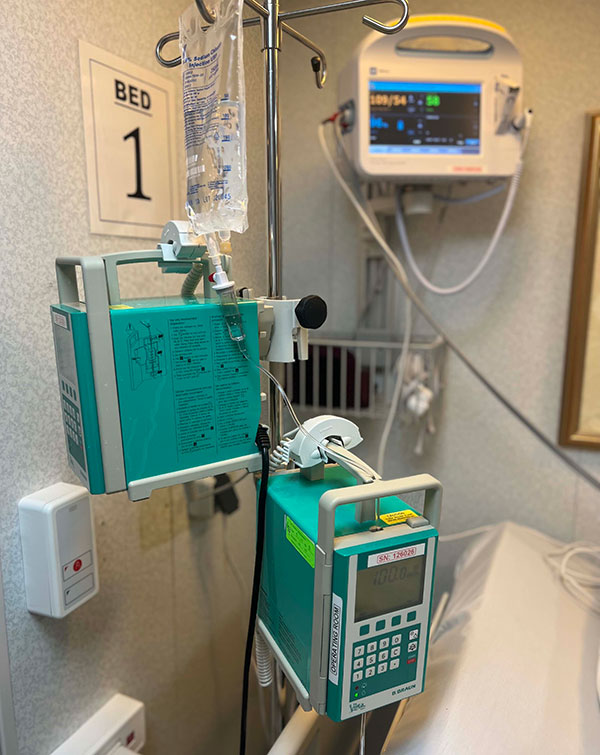COVID Complications
My husband and I had COVID right around Christmas last year. Thanks to the vaccines, I didn’t feel extremely ill—just some aches and pains, coughing, sinus pain, and shortness of breath. I called my primary care provider, and the person on call said to just treat the symptoms. She prescribed cough medicine and an antibiotic for the apparent sinus infection.
A week or so later, I saw my primary for something else, and I told her, “I don’t think my leg is supposed to look like this.” It had become swollen and painful, and my foot was dusky. The ultrasonographer in the practice was gone for the day. So my primary called a colleague in the ER who said she should bring me down there. My husband was waiting in the car, since we had planned to go out to dinner after my appointment.

